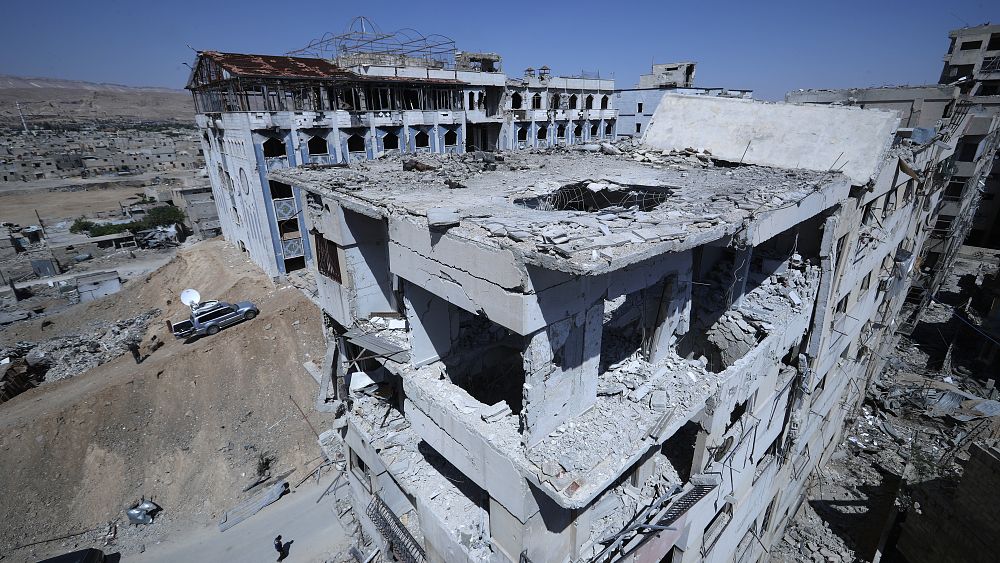
A Syrian doctor has been charged in Germany with crimes against humanity, federal prosecutors said.
Alla Mousa, who came to Germany in 2015, is accused of torturing at least 18 people in military hospitals in Homs and Damascus after the 2011 uprising.
One person was allegedly killed, while the suspect had also tried to make people infertile, prosecutors said on Wednesday.
Mousa was charged with murder, severe bodily harm, attempted bodily harm, and dangerous bodily harm.
He had been practising medicine in Germany before he was arrested last year, a statement added.
The Federal Prosecutor’s Office in Karlsruhe said the crimes were committed after the beginning of the opposition uprising against Syrian President Bashar Assad in 2011.
Protesters were frequently arrested and tortured, while injured civilians who were thought to be members of the opposition were also abused in military hospitals.
Mousa is accused of spraying alcohol on the genitals of two people and setting fire to them at a hospital in Homs, as well as kicking and beating nine others.
He is also alleged to have beaten a jailed man in 2012 with the help of another nurse and later injecting the man with a lethal substance.
In February, a German court convicted a former member of Assad’s secret police of facilitating the torture of prisoners. Eyad Al-Gharib was convicted of complicity in crimes against humanity and sentenced by the Koblenz state court to four-and-a-half years in prison.
It was the first time that a court outside Syria had ruled in a case alleging Syrian government officials committed crimes against humanity. Human rights activists hailed the verdict as a landmark ruling that would set a precedent for other cases in the decade-long conflict.
In recent years, Berlin has been at the forefront of prosecuting serious crimes in Syria under the principle of “universal jurisdiction” and if the cases involve victims and defendants in Germany.
The general secretary of the European Centre for Constitutional and Human Rights has praised the indictment of Mousa, which paves way for his trial.
“Grave crimes against Syria’s civil society are not only taking place in the detention centers of the intelligence services,” Wolfgang Kaleck said in a statement.
“Syria’s torture and extermination system is complex and only exists thanks to the support of a wide variety of actors. With the trial [of Mousa], the role of military hospitals and medical staff in this system could be addressed for the very first time.”
“[The trial] also sends an important signal to the many survivors who have remained silent until now,” he added.